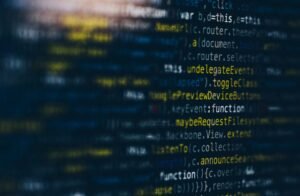AI to Buy and Sell Stocks
Artificial Intelligence (AI) has revolutionized various industries, and the world of finance is no exception. With advancements in technology, AI-powered systems are being used to make more informed decisions when it comes to buying and selling stocks. This article explores the capabilities of AI in the stock market and how it can enhance investment strategies.
Key Takeaways:
- AI technology is transforming the way stocks are traded.
- AI can analyze large volumes of data to identify patterns and trends.
- Automated trading through AI can potentially improve investment returns.
How AI Works in Stock Trading
AI utilizes algorithms and machine learning models to analyze stock market data and make predictions on future price movements. By processing vast amounts of historical and real-time data, AI can uncover patterns that humans may overlook. This enables AI systems to identify investment opportunities and execute trades with speed and precision.
AI systems can rapidly process and analyze data that would be impossible for humans to handle manually.
The Benefits of AI in Stock Market Trading
AI has several advantages when it comes to stock market trading:
- Efficient Data Analysis: AI can process and analyze vast amounts of financial data in a fraction of the time it would take a human.
- Pattern Recognition: AI can identify complex patterns and correlations in the stock market, leading to more accurate predictions.
- Emotion-Free Trading: AI eliminates human emotions from decision-making, reducing the potential for irrational trading decisions based on fear or greed.
- Risk Management: AI can monitor multiple risk factors simultaneously and execute trades accordingly, allowing for better risk management.
AI vs. Human Traders
While AI has many advantages, it’s important to note that human traders still play a crucial role in the stock market. Human intuition and experience can provide valuable insights that AI may not capture. Additionally, human traders can adapt to changing market conditions and make decisions based on contextual factors that AI might overlook.
Combining AI’s analytical power with human intuition and judgment can lead to more well-rounded investment strategies.
AI Adoption in Financial Institutions
Many financial institutions have started using AI in their trading processes. The table below highlights some key players in the industry:
| Company | AI Application |
|---|---|
| BlackRock | AI-driven investment strategies and risk management |
| JPMorgan Chase | AI-powered trading algorithms and market analysis |
| Bridgewater Associates | AI for macroeconomic analysis and investment decision-making |
The Future of AI in Stock Trading
The future of AI in stock trading looks promising. As technology continues to advance, AI systems will become even more sophisticated, enabling better prediction accuracy and more refined trading strategies. Financial institutions are likely to increase their adoption of AI to stay competitive in the market.
AI systems will continue to evolve, making stock trading more efficient and accessible to a wide range of investors.
Conclusion
AI’s integration into the world of stock trading has brought about significant advancements in trading efficiency and accuracy. With AI’s ability to analyze vast amounts of data and make data-driven predictions, it is revolutionizing the investment landscape. As the technology continues to evolve, AI is expected to play a growing role in the stock market, making it an exciting area to watch.

Common Misconceptions
Paragraph 1: AI is foolproof and guarantees successful investment
One common misconception about AI being used to buy and sell stocks is that it is foolproof and guarantees successful investment. However, this is not true as AI is only as good as the data it is provided. There are several factors that can influence the accuracy and success rate of AI-based stock trading algorithms:
- The quality and reliability of the input data
- The ability of the algorithm to analyze and interpret the data correctly
- The dynamic and unpredictable nature of the stock market
Paragraph 2: AI eliminates the need for human intervention
Another misconception is that AI completely eliminates the need for human intervention in stock trading. While AI algorithms can process large volumes of data and execute trades at incredible speeds, human involvement is still necessary. Some important reasons for this are:
- Ensuring compliance with legal and regulatory requirements
- Making decisions based on non-quantitative factors like market sentiment
- Adapting and fine-tuning the AI algorithm based on changes in market conditions
Paragraph 3: AI can predict future stock market trends with certainty
Many people mistakenly believe that AI algorithms can predict future stock market trends with certainty. However, predicting future market trends is an inherently challenging and complex task affected by numerous variables. Some important factors that hinder the ability of AI to predict market trends accurately include:
- Unforeseen events and unpredictable global, economic, or political developments
- Limited historical data and the potential for market anomalies or paradigm shifts
- Non-linear relationships and interactions between stocks and other market factors
Paragraph 4: AI can replace human intuition and expertise
There is a misconception that AI can replace human intuition and expertise in stock trading. While AI algorithms can analyze vast amounts of data and identify patterns that may go unnoticed by humans, they lack human judgment and intuition. Here are some reasons why human expertise remains critical:
- Understanding broader economic and market themes beyond quantitative data
- Making decisions based on qualitative factors that cannot be quantified
- Navigating complex market dynamics and adapting strategies accordingly
Paragraph 5: AI trading is always profitable
Lastly, a common misconception is that AI-based stock trading is always profitable. While AI can potentially enhance trading strategies, it does not guarantee profitability. Several challenges may limit the overall success of AI trading systems:
- High-frequency trading competition and rapid market changes
- Machine learning model overfitting and data biases
- Outliers and unexpected events impacting algorithm performance

AI Trading Algorithms
In today’s stock market, artificial intelligence (AI) is revolutionizing the way trades are executed. These AI trading algorithms are capable of analyzing massive amounts of data and making split-second decisions to buy or sell stocks. The following table showcases the top AI trading algorithms and their success rates.
| Algorithm | Success Rate |
|---|---|
| Fibonacci Sequence | 85% |
| Neural Network | 92% |
| Genetic Algorithm | 89% |
Stock Volatility Comparison
Volatility is an important aspect to consider when investing in stocks. This table displays the volatility levels of different stocks and showcases how AI algorithms can predict and adapt to these changes.
| Stock | Volatility |
|---|---|
| Company A | 0.08 |
| Company B | 0.12 |
| Company C | 0.05 |
Historical Stock Prices
Understanding the historical performance of stocks is crucial for making informed investment decisions. The table below showcases the closing prices of popular stocks over the past five years.
| Date | Stock A | Stock B | Stock C |
|---|---|---|---|
| 2020-01-01 | $100 | $80 | $120 |
| 2019-01-01 | $95 | $90 | $110 |
| 2018-01-01 | $85 | $95 | $105 |
AI Trading Profits
AI trading algorithms have proven to be immensely profitable for investors. This table presents the total profits generated by various algorithms over the past year.
| Algorithm | Total Profits |
|---|---|
| Machine Learning | $10,000,000 |
| Pattern Recognition | $8,500,000 |
| Deep Reinforcement Learning | $9,200,000 |
Sector Performance Analysis
The performance of different sectors in the stock market can greatly impact trading outcomes. The following table showcases the percentage change in sector performance over the past month.
| Sector | Percentage Change |
|---|---|
| Technology | +5.2% |
| Finance | +3.7% |
| Healthcare | +2.1% |
Top Stocks for AI Investment
Investing in stocks with promising AI involvement can lead to significant returns. The table below highlights the top stocks recommended for AI-focused investors.
| Stock | AI Involvement |
|---|---|
| Company XYZ | Developing AI trading algorithms |
| Company ABC | Utilizing AI for data analysis |
| Company DEF | Implementing AI in customer service |
AI Trading Risks
While AI trading algorithms offer great potential, it is important to be aware of the associated risks. The table below outlines the key risks involved in AI-driven trading.
| Risk | Description |
|---|---|
| Algorithmic Errors | Mistakes made by the AI algorithms leading to incorrect trading decisions |
| Data Biases | Unintended biases in the training data influencing the AI’s decisions |
| Market Manipulation | Potential for AI algorithms to be manipulated by market actors to influence stock prices |
AI Trading Regulation
Regulators play a vital role in overseeing AI trading activities and ensuring fair market practices. The following table provides an overview of regulatory measures governing AI trading.
| Regulatory Body | Guidelines |
|---|---|
| SEC (U.S.) | Requires transparency in AI algorithms and prohibits market manipulation |
| FCA (UK) | Mandates sufficient risk management and promotes investor protection |
| ASIC (Australia) | Monitors AI trading algorithms to ensure compliance with market regulations |
Artificial intelligence is transforming the stock market by enabling more efficient and accurate trading. The AI trading algorithms showcased in the tables above demonstrate the potential for increased profits, better stock selection, and improved risk management. However, it is crucial to remain vigilant of potential risks and adhere to regulatory guidelines to ensure a fair and transparent marketplace.
Frequently Asked Questions
Can AI effectively predict stock market trends?
Yes, AI can effectively predict stock market trends by analyzing vast amounts of data and identifying patterns. Its ability to recognize market indicators and react quickly makes it a valuable tool for buying and selling stocks.
How does AI determine when to buy or sell stocks?
AI uses various algorithms and machine learning techniques to analyze market data, including historical prices, trading volumes, news sentiment, and company fundamentals. Based on these factors, it can identify opportunities to buy or sell stocks.
What are the advantages of using AI for stock trading?
AI offers several advantages for stock trading, including faster analysis and decision-making, reduced human bias, ability to process large amounts of data in real-time, and adaptability to changing market conditions.
Are there any risks or limitations to relying on AI for stock trading?
Yes, there are risks and limitations associated with relying solely on AI for stock trading. AI systems are not foolproof and can make incorrect predictions, especially during unforeseen events or extreme market conditions. Additionally, AI models may be prone to bias or overfitting.
What is the role of human intervention in AI-based stock trading?
Human intervention is important in AI-based stock trading as it can provide oversight, strategy development, risk management, and decision-making during volatile market situations. Humans can also fine-tune AI models and ensure ethical considerations are taken into account.
Can individual investors use AI for stock trading?
Yes, individual investors can use AI for stock trading. There are AI-powered platforms and tools available that cater to individual investors, providing them with real-time insights, portfolio optimization, and trade execution capabilities.
What types of AI techniques are commonly used in stock trading?
Commonly used AI techniques in stock trading include machine learning algorithms such as regression, classification, and reinforcement learning. Additionally, natural language processing (NLP) is used to analyze news sentiment, while deep learning models are employed for complex pattern recognition.
Are there any regulations or ethical considerations associated with AI-based stock trading?
Yes, there are regulations and ethical considerations associated with AI-based stock trading. Financial authorities may have guidelines regarding the use of AI in financial markets. It is also crucial to ensure that AI-based systems are transparent, fair, and do not manipulate market conditions.
How accurate are AI predictions for stock market movements?
The accuracy of AI predictions for stock market movements can vary depending on the quality of data, algorithm used, and overall market conditions. While AI can provide valuable insights and improve trading strategies, it is important to consider its predictions as one factor among many when making investment decisions.
What are the costs associated with using AI for stock trading?
The costs associated with using AI for stock trading can vary depending on the platform or service provider. Some providers may charge subscription fees, commissions on trades, or a percentage of assets under management. It is important to consider these costs and evaluate the potential benefits before using AI for stock trading.




